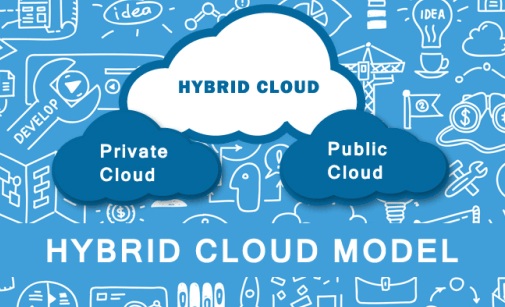For several years now, enterprises have been concentrating on cloud computing solutions but there is a small group that is extremely security conscious and therefore hesitates to move their workloads and precious data into the cloud. Hybrid cloud model comes to the rescue of such a class of organizations that offers a combination of private and public cloud networks and thereby is a more organized, customized, and secure platform. In a hybrid network, the private and public cloud infrastructures, which otherwise operate as independent entities, communicating over an encrypted connection.

The hybrid arrangement allows organizations to store their highly precious and privileged data on a private cloud while providing the flexibility to leverage computational resources from the public cloud. The most obvious benefit of a hybrid cloud environment is that enterprises can have on premise, private infrastructure resulting in reduced access time and latency when compared to the public cloud networks. The feature of leveraging to the public cloud for any failover circumstance provides an additional benefit of paying for the extra compute only when the resources are utilized.
Hybrid computing creates a balance between internal assets and external services. On one hand, it enables technology to optimize its infrastructure to meet business needs while maintaining security and reliability of vital data and applications. On the hand, it allows access to the public cloud’s storage and network capacity for routine operations and additional space on demand.
Let us consider the following criteria to decide whether hybrid cloud solution is designed to suit your business needs:
Reliability–A network downtime is really frustrating and unaffordable. So, you must enquire about the service provider’s redundancy capacity and ensure that there are no points of failure.
Security – Before finalizing a hybrid cloud computing service, enquire about the provider’s flexibility to be compliant to the security and privacy regulations that are specific to your industry.
SLAs – Check how your hybrid cloud partner’s service level agreements are defined.
Latency – Enquire how hybrid cloud service providers run applications and whether data transfers across platforms are involved.
Hybrid cloud is a likely answer to enterprises looking for more flexibility in balancing the priorities of business and cloud infrastructure. However, choosing the right hybrid cloud computing service provider is important. In Cleveland, Net Activity, Inc. is an established cloud solution provider offering customizable plans for all business sizes. We are a team of professionals serving a large base of clientele since 2002. For more details about our services, please visit http://www.netactivity.us/services/cloud-computing-services or feel free to contact Harry Bhatia at 888-545-5346.





